
OR
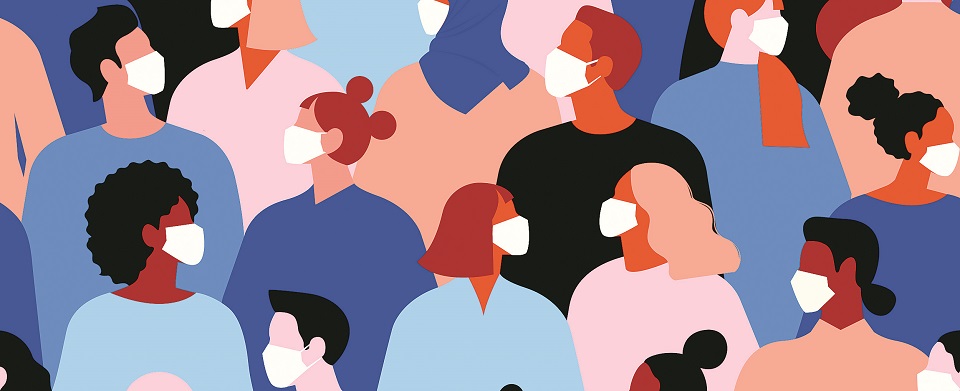
Five years ago, we weren’t able to stop the earth from shaking. All we could do was to make sure we were not inside home. Now, we need to do everything to stay inside home. This is not normal
A week ago, life was different. As I am almost getting done with my PhD, I had planned each day to the utmost perfection. Sundays: Going to bazar, journaling, and recently I was planning on making my Sundays “spiritual.” Yoga for three days a week. Teaching for Tuesdays and Thursdays. A date for Wednesdays and Fridays. And, rest of the time writing my dissertation, which I am defending soon to get Doctorate Degree. Everything was perfectly planned and there was a plan B too. But I didn’t plan to live through yet another disaster—the pandemic, the Covid-19 crisis that has crippled lives of hundreds and thousands of us around the world.
We knew about the coronavirus since China announced it at the end of December and few weeks later on January 30, when the World Health Organization (WHO) announced a Global Emergency as various countries in the world started to report deaths related to Covid-19. There was one case reported in Chicago, two hours from where I currently live. I was concerned but not panicked. The virus discussion on Twitter had picked up, the famous Chinese doctor who had outspoken about the virus had just passed away, and #Covid19 was trending online and in all of our lives.
Denied and failed
Every day for past three months, I read, ignored, and denied the news related to Covid-19. After many universities in the US including mine took a step to go online on March 10 it hit me: I am living disaster yet again. Subsequently, the next day, WHO announced Covid-19 as a pandemic and by this time, the Covid-19 cases and deaths in Washington State were already rising. My timeline was filled with a lot of resources for online teaching, discussions on online teaching, and humors about teaching and learning online.
While, I was trying to adjust and deny the pandemic, I was slowly discovering that the toilet papers, hand sanitizers, and cleaning supplies were already in shortage. I was more concerned about Nepal, and my timeline suggested the discourse of Covid-19 wasn’t that prominent but there were some fears, some humor, and some circulation of information in twitter space in Nepal. I was worried, when the health minister’s interview wasn’t clear enough for me to understand the Covid-19 situation. I was worried to see all the marriage parties still ongoing, and Tourism Minister declaring Nepal a ‘corona-free’ zone.
As the US President announced a national emergency and the Center for Disease Control and Prevention announced the social distancing and self-isolation, the trauma became real. And the memories of 2015 earthquakes started to circle back. It is an emergency and I need to keep myself safe in order to keep the community safe. But it is not like the earthquake, where living outside our house was safe, and running away from the buildings was an act of safety. Here, anyone (human or non-human) could be carrying the virus and I would never know. It is crazy. My family has started to call many times a day with all possible cures that has been circulating on the internet.
Isolating oneself
It is nearly 10 days since I started social distancing. My plan was to work and finish my dissertation. I could not do that. I was social distancing and trying to work from home like millions of other people, but instead I ended up staring at my computer for hours, scrolling through my phone and binging on Netflix. Again, denying that the virus is crippling the lives all over the world and mine. I wanted to live in a denial that the virus wouldn’t come near me or my family or friends. But, as the death toll has been rising, and the number of cases is going up by hundreds every minute, it is the time to be scared and to stay home and be responsible.
For the first few days of quarantine, I was missing my life as a journalist and my work in Nepal during the earthquake. It had hit me hard that I had to stay home and wasn’t doing my part of informing people like I used to do in Nepal. I felt so helpless and selfish to stay home and think about my dissertation. While, I was feeling this, my immigrant parents were still working their normal job of food delivery and care giving. Both are in the vulnerable population, and it was hard to convince them not to work because if there is no work, there is no paycheck. And, since my parents are in the US, even if they get sick, they could spend years paying back to the insurance company. Millions of people are on the same boat with my parents. They cannot work online like I do, and there is no guarantee of a paycheck like mine.
I have been thinking about how privileged I am, to be able to work online and not go to office, and still get a paycheck at the end of the month. At this moment of crisis, it is difficult for me to get to the normalcy: To get back to the perfectly planned days of my week, to think about my dissertation, my work, my family, my friends, my students.Life is not normal but yet there are moments of normalcy that get ignored. The body, mind, and the internet react to the crisis in multitude of ways. I wish that my denial of the existence of the pandemic is real. It is not.
Five years ago, we lived through the biggest earthquake. We lost many of our families, friends and colleagues. Prevention measures against Covid-19 have progressed in Nepal with Prime Minister Oli taking some actions. Five years ago, we weren’t able to stop the earth from shaking and destroying. All we could do was to make sure we were not inside home.
Covid-19 has presented us with a different sort of challenge. Now, we need to do everything to stay inside home. This is not normal. We need to convince ourselves as well as our parents to change the daily course of lives at least for some time and ask them to strictly practice social distancing. That means, not going to temples, chiyapasal, morning walks, or many other normal daily activities. Additionally, it might take time for this to sync inside our minds, our parents’ or our friends’ mind. We need to be very kind to them for they might be in denial like me. Talk to them, listen to them, and carefully persuade them.
We might be able to save millions of lives, if we practice social distancing and adjust living in the little moments of quarantine.
The author is about to complete her PhD in Rhetoric and Composition from Purdue University, USA
You May Like This
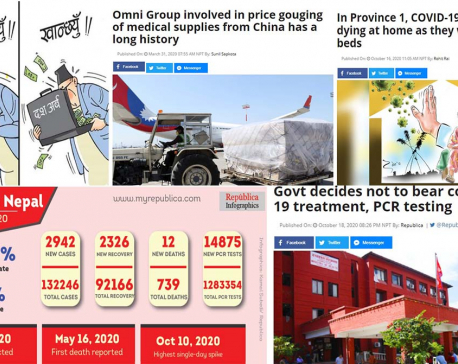
As Oli government limits its role to counting deaths during the greatest public health crisis, people are dying at an alarming rate
Experts say the government has decided to shred the constitution ... Read More...
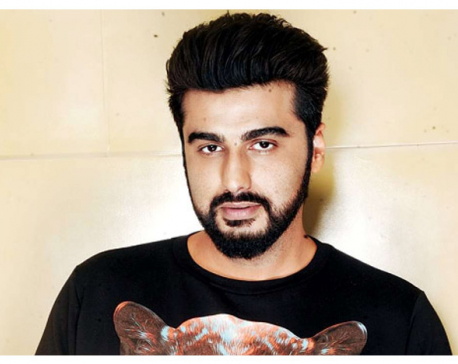
Arjun Kapoor tests positive for Covid-19
Actor Arjun Kapoor has revealed that he has tested positive for Covid-19. He is asymptomatic and is currently in home... Read More...

'The society made me infected, I was not'
DANG, March 31: After a girl who returned from France to Nepal recently tested positive for the novel coronavirus, the... Read More...




Just In
- NEA Provincial Office initiates contract termination process with six companies
- Nepal's ready-made garment exports soar to over 9 billion rupees
- Vote count update: UML candidate continues to maintain lead in Bajhang
- Govt to provide up to Rs 500,000 for building houses affected by natural calamities
- China announces implementation of free visa for Nepali citizens
- NEPSE gains 14.33 points, while daily turnover inclines to Rs 2.68 billion
- Tourists suffer after flight disruption due to adverse weather in Solukhumbu district
- Vote count update: NC maintains lead in Ilam-2








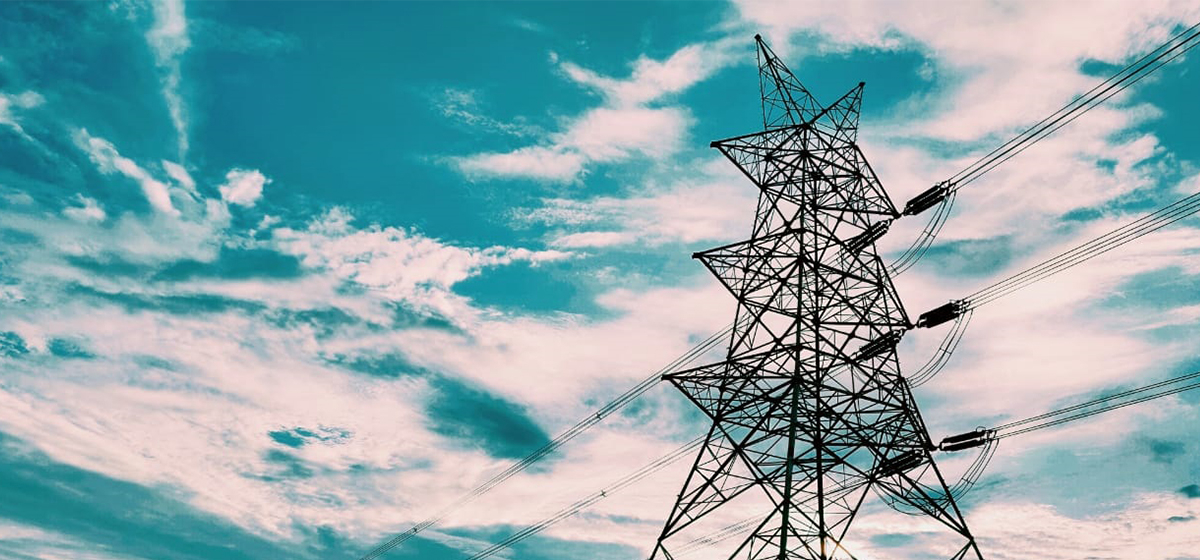




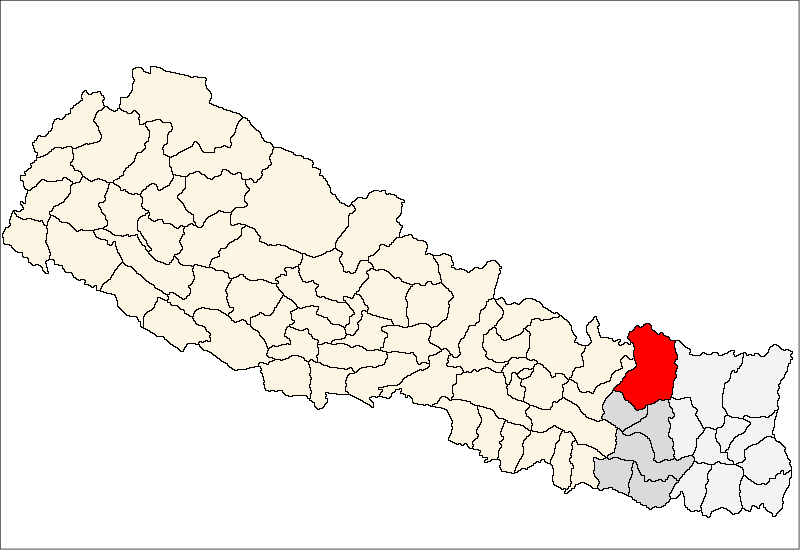
Leave A Comment